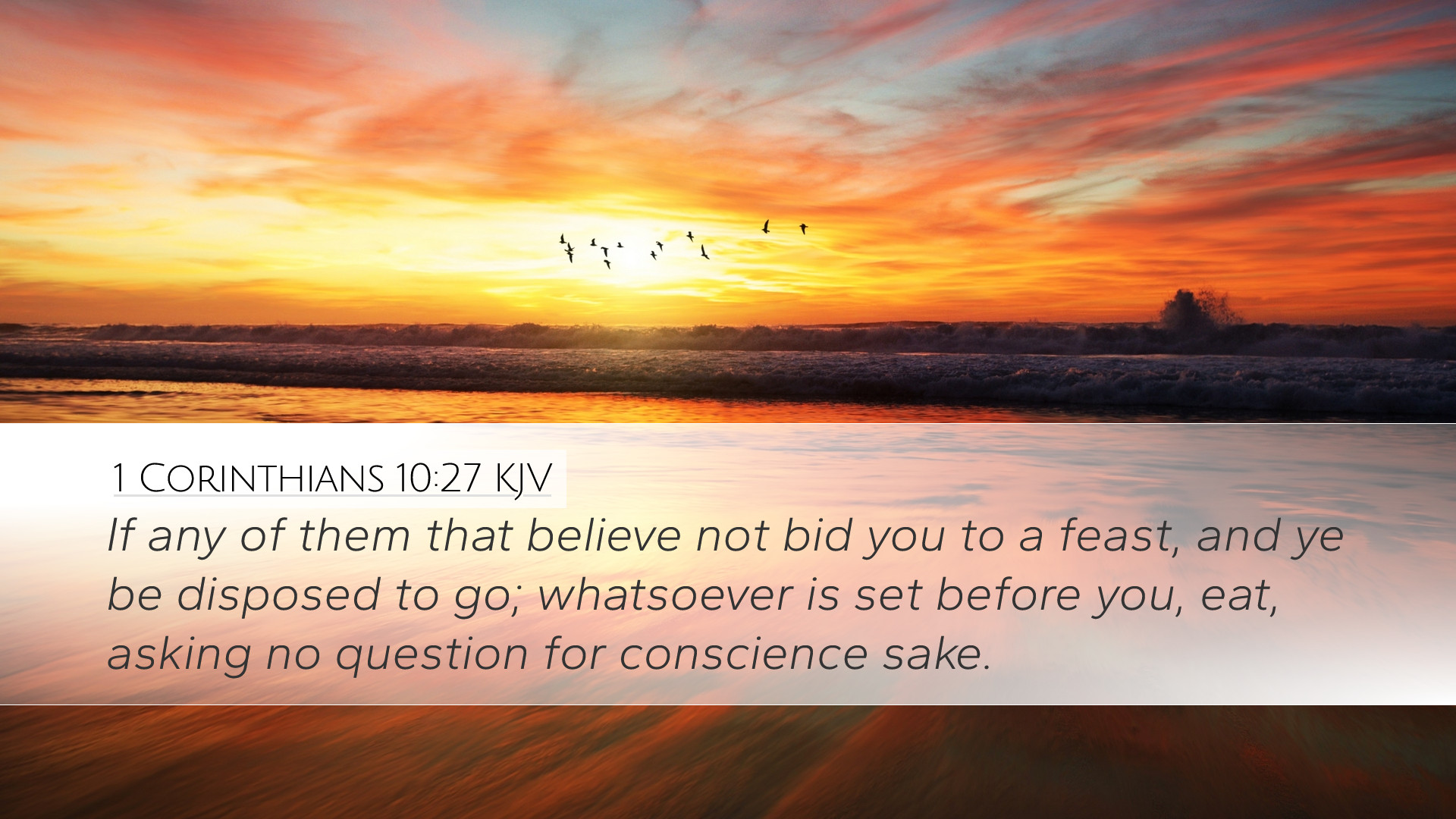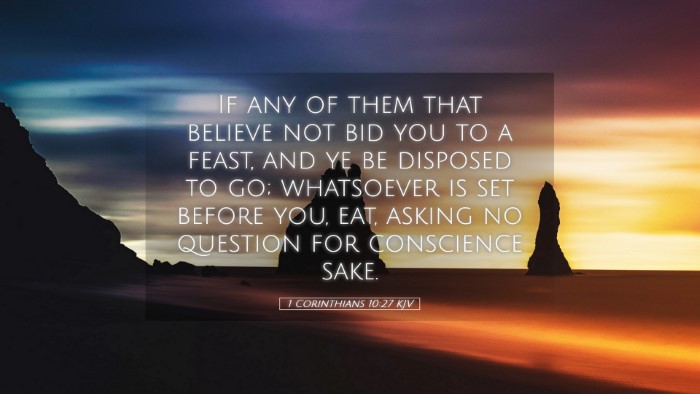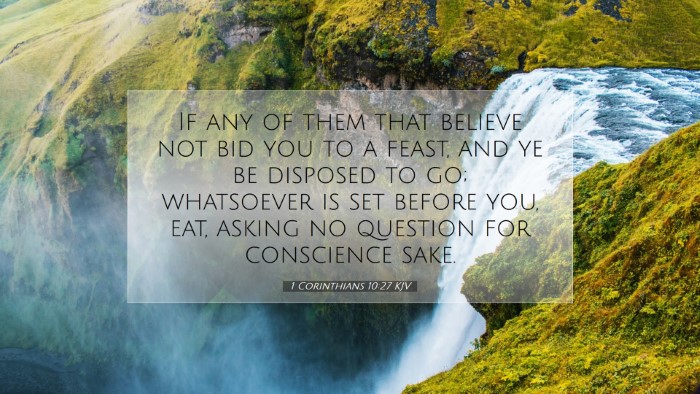Commentary on 1 Corinthians 10:27
Verse Text: "If any of those who do not believe invites you to dinner, and you desire to go, eat whatever is set before you, asking no question for conscience' sake."
Introduction
This verse from Paul's first letter to the Corinthians provides critical guidance for navigating the complexities of living as a Christian within a diverse cultural context. The instruction here calls for wisdom and discernment, especially regarding interactions with unbelievers and their practices.
Contextual Background
The Apostle Paul writes to a church entangled in disputes over the consumption of meat offered to idols, a major point of contention in Corinthian society. In the preceding verses, Paul addresses the Christian freedom to partake in such food, provided it does not cause another believer to stumble. This specific verse deals with an invitation from non-believers—a situation where the believer must balance their conscience, witness, and the testimony of the Gospel.
Insights from Matthew Henry
Matthew Henry emphasizes the importance of being gracious in social settings with unbelievers. He notes that such interactions should be approached with a spirit of hospitality and charity. He asserts:
- The act of sharing a meal can serve as a bridge for evangelistic opportunity.
- Paul's directive to ask no questions carries the implication of being mindful of the less scrupulous nature of the environment; believers should not let their inquiries stir up unnecessary strife about practices that do not inherently affect their faith.
Insights from Albert Barnes
Albert Barnes offers a practical analysis of this verse, suggesting that it speaks to the heart of Christian liberty. He encourages believers to be wise in their conscience:
- Eating what is set before you can demonstrate an attitude of love and goodwill towards the unbeliever.
- The directive to avoid inquiries about the food is a safeguard for the conscience, ensuring that one does not delve into questions that could evoke doubts regarding idolatry.
- This exemplifies the principle of not allowing personal convictions to hinder outreach opportunities.
Spiritual Discernment
Barnes stresses the need for discernment in such situations, weighing personal conscience against the importance of maintaining a positive witness. He implies that eating with unbelievers in this context should advance the believer's mission instead of causing conflict.
Insights from Adam Clarke
Adam Clarke provides a deeper dive into the cultural norms surrounding dining in the ancient world. He remarks:
- In Corinth, meals were often communal and tied to idolatrous practices, which created a dichotomy for the Christians.
- Clarke highlights that Paul’s instruction here is more about the believer’s posture and the relational sensitivity needed when interacting with non-Christians.
- The idea is to keep the Christian witness intact while engaging in cultural practices that do not compromise the faith.
Cultivating Relationships
Clarke insists that while believers must remain cautious, they should also cultivate genuine relationships with unbelievers. This can lead to opportunities for sharing the Gospel, and there should be readiness to embrace hospitality without bias or fear.
Theological Implications
1 Corinthians 10:27 highlights significant theological themes relevant to pastoral ministry and Christian practice:
- The Nature of Liberty: Believers are granted freedom in Christ but must learn to exercise that freedom responsibly.
- Conscience and Community: The interplay between personal conscience and community awareness is highlighted, urging believers to be sensitive not just to their convictions but to those of others.
- Evangelistic Opportunities: The context calls for a proactive approach to evangelism without compromising principles—a balancing act fundamental to Christian witness.
Conclusion
In 1 Corinthians 10:27, Paul instructs believers on the importance of understanding the cultural dynamics of their context. Emphasizing love and acceptance, he advocates for a wise engagement that supports the witness of the Gospel while affirming their own faith. This verse invites pastors, students, and theologians to reflect on how they can navigate similar situations with grace, ensuring their actions reflect the heart of Christ while striving to build bridges to those still outside the faith.


